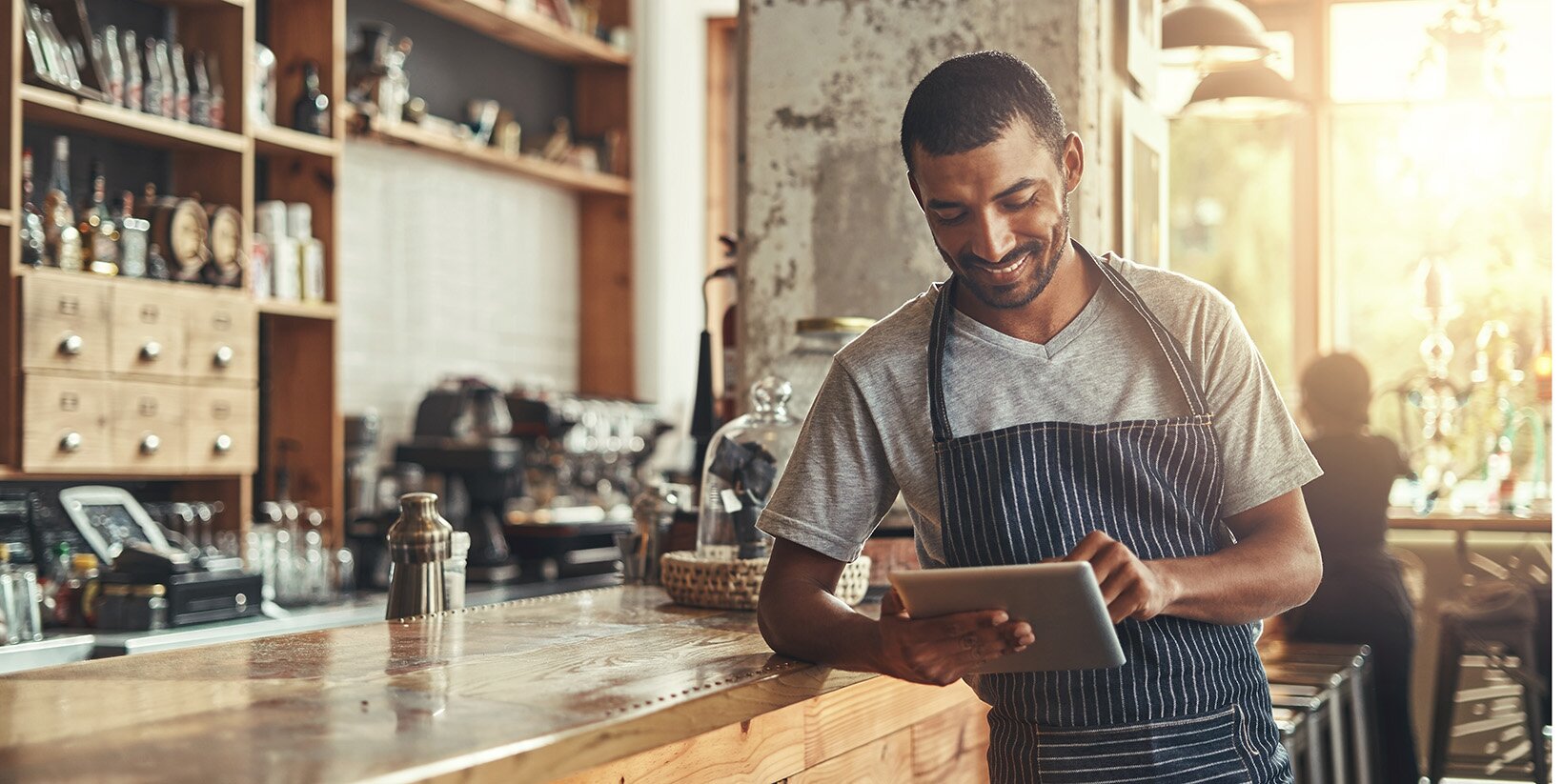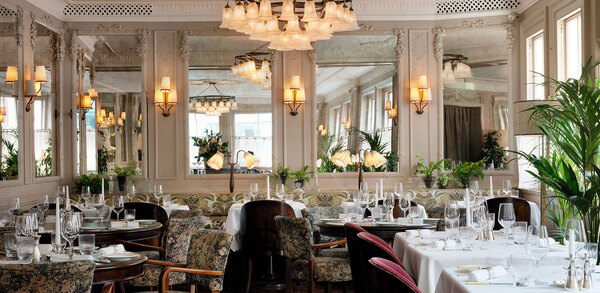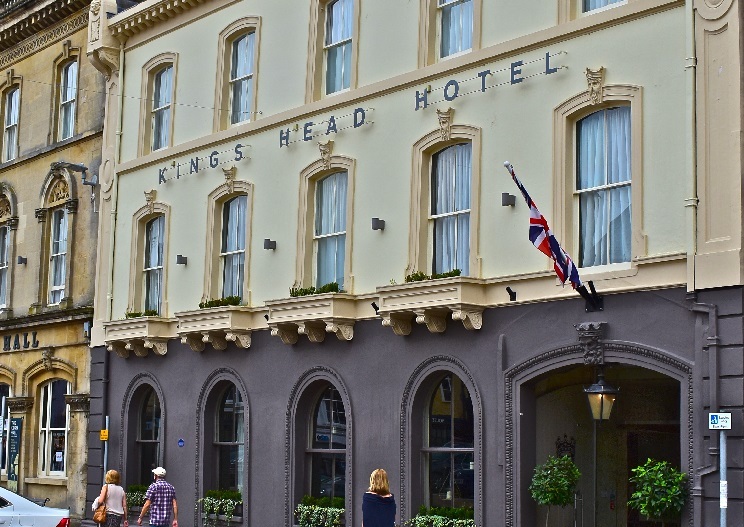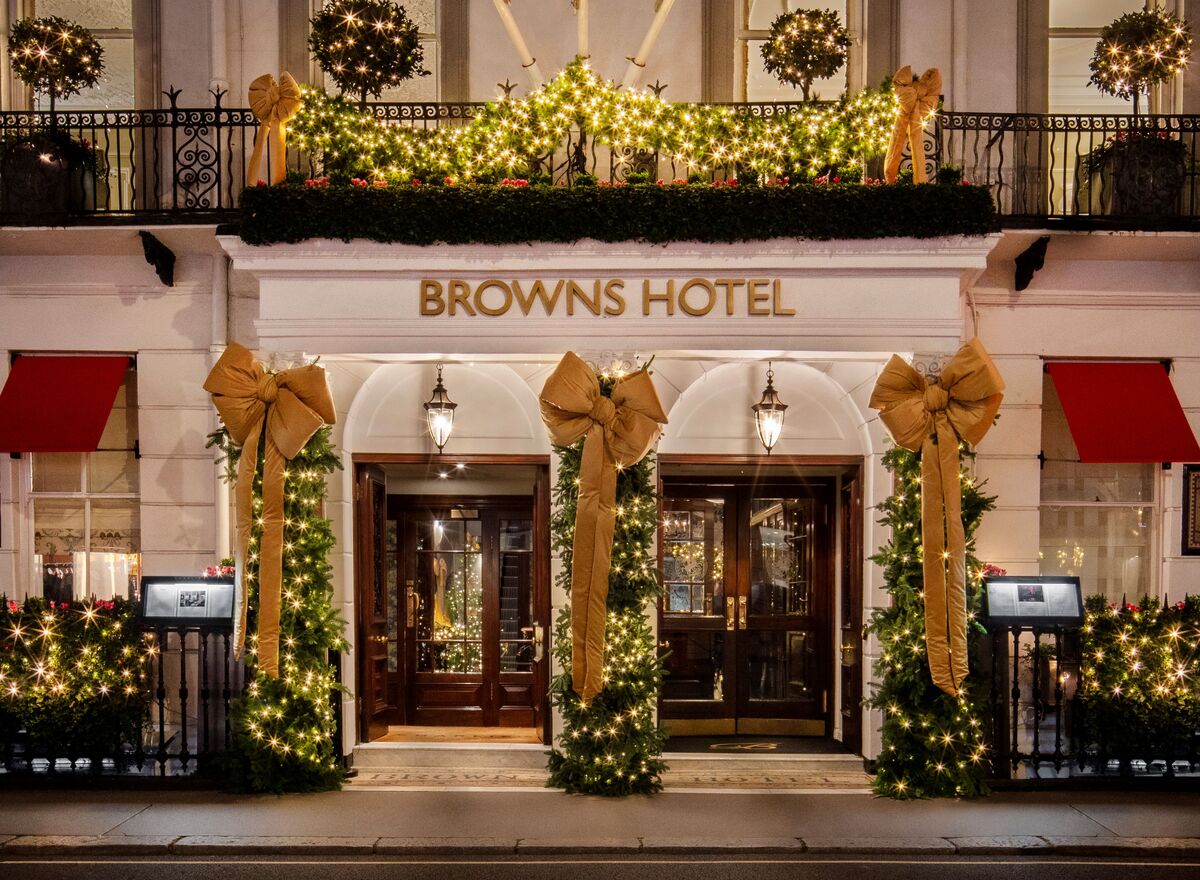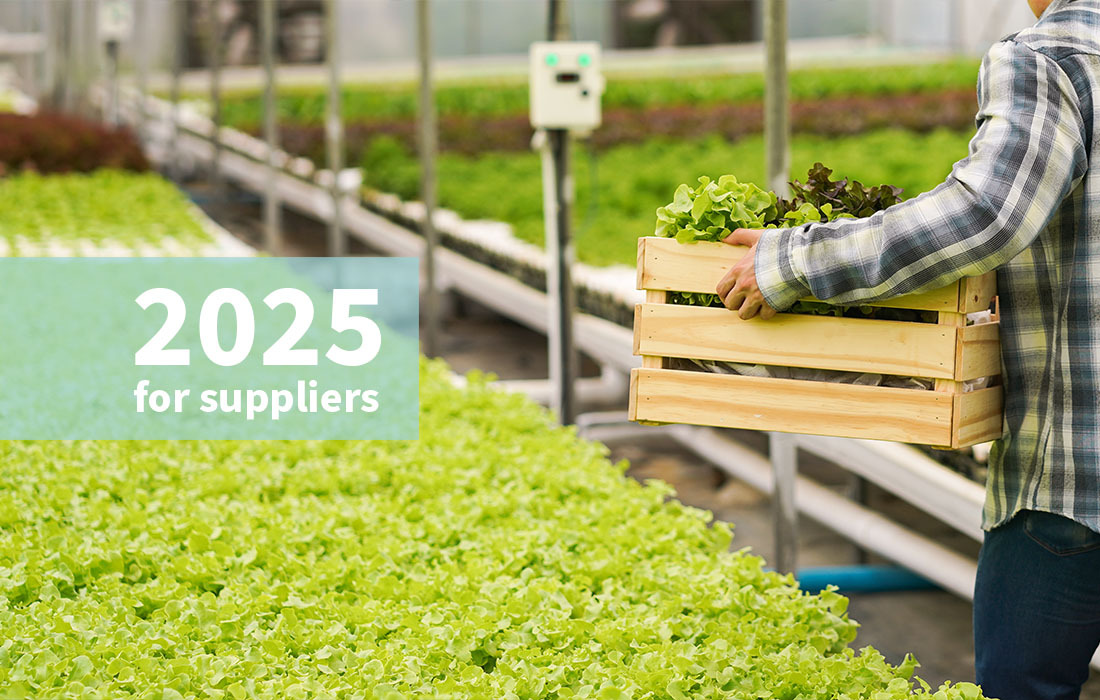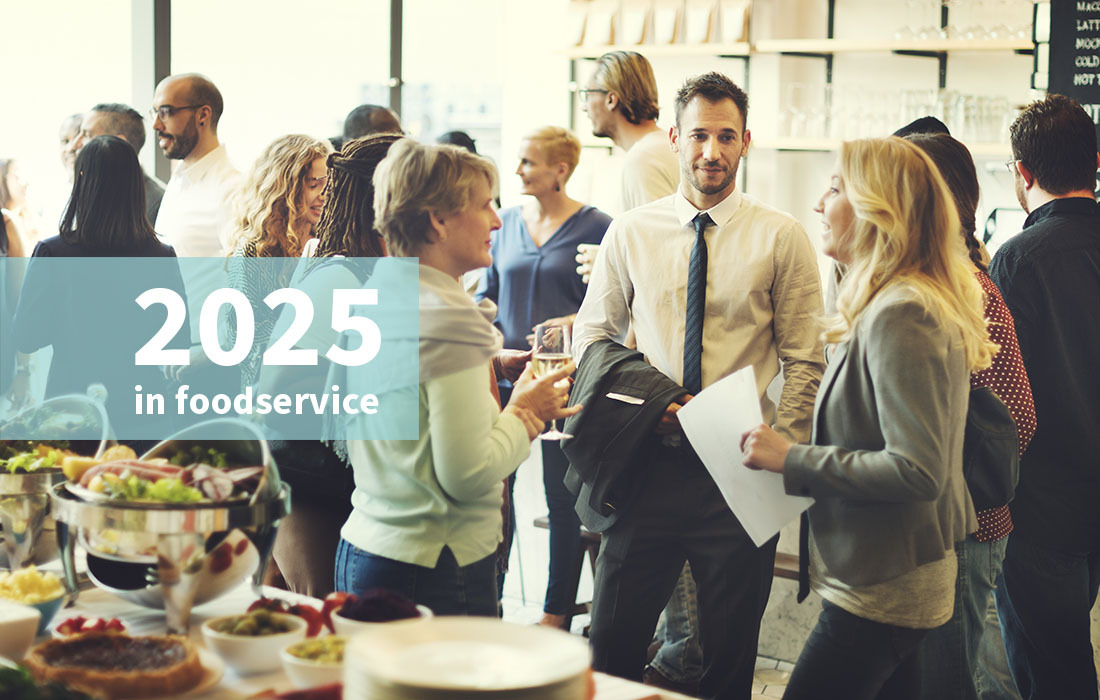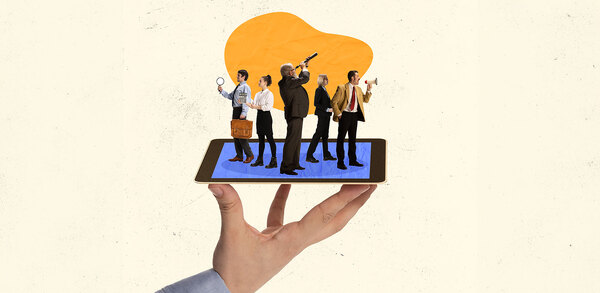Technology Prospectus 2021: getting the best out of your EPoS
The Covid-19 pandemic has led to rapid adoption of technologies like mobile ordering and delivery, but operators need to integrate tomorrow’s technology into today’s business, says Elly Earls.
Prior to the Covid-19 pandemic, many hospitality operators had electronic point of sale (EPoS) systems that were capable of doing a lot more than they were being asked to. Features such as the ability to scan QR codes to find seats in restaurants, download menus, place orders or pay bills aren’t new, but were rarely used. Meanwhile, many businesses had only scratched the surface when it came to the customer and business insights that integrated systems can offer.
Today, human interaction in an EPoS is a minimal requirement, both between customers and staff and between staff members. This used to be valued mainly because it eased communication between the restaurant floor and the kitchen – such as handheld or mobile ordering – but this has now become essential to keep customers safe and comply with regulations.
Research by mobile order and pay app OrderPay, which launched as lockdown restrictions began to ease in July, found that 41% of UK adults said that mobile phone ordering had become more important over the past six months. “This underlines that tech solutions have become a key component in operating safely, rebuilding consumer confidence and driving footfall,” says chief commercial officer David Charlton.
Staff have also been freed up to make table deliveries for drinks – something which was almost unheard of in high street pubs before. Meanwhile, other EPoS features that were seldom used to their full potential before the pandemic have proved pivotal in helping businesses adapt to the new trading restrictions.
“Some EPoS have inbuilt floorplans, which allows for new configurations to be inputted that meet with new social distancing requirements. Doing this electronically is far easier than pulling out the tape measure,” says Hospa chief executive Jane Pendlebury.
“In addition, servers now have to be careful to allow time to sanitise tables between guests, and this is something that EPoS, with its in-built table reservations facility, also factors in. Now, more than ever, reservations are crucial to planning and controlling numbers. With many pubs now only taking visitors when they have a pre-booked table, EPoS with its added functionality allows for easy management of this.”
Key to the success of any newly introduced technology or way of working is that staff are on board, and one easy way to get staff engaged with mobile ordering, according to Charlton, is by reminding them it can encourage more generous tipping. He’s already hearing feedback from operators within the OrderPay network that the ability to set a tipping benchmark of 10% or 12.5% of bill total through the digital order and payment channel is actually resulting in higher tips for staff than the previous cash alternative.
“It’s a virtuous circle, because great tips will give you an engaged team, which in turn will help you to unlock the true potential and benefits of order and payment, including increased basket size, increased retention and visit frequency, direct marketing opportunities to new and existing customers, and optimised operations,” he says.
Reaching new audiences through delivery
OrderPay has more than 6,000 pubs and restaurants – and £7b of the hospitality sector – signed up to its network. But Charlton says mobile payment is just one strand to a successful tech strategy, both during the pandemic and beyond.
“Consumers are now in charge of their own experience, and taking a consumer-centric approach by switching on as many ordering channels as possible is the best way to capture their loyalty, drive footfall and increase spend per head,” he says.
He suggests working with more than one solution provider for features like order and pay, click and collect, gifting functionalities and order management and delivery. Indeed, delivery has been one of the big stars of 2020, allowing businesses to stay connected with their existing customers and potentially reach new ones even during strict lockdowns.
What’s important for operators to remember is that a delivery solution must be integrated with EPoS to get the best out of it. As Richard Cox, managing director of EPoS provider Langley Business Systems, explains: “It means that all orders can be accounted for, allowing businesses to run on a skeleton body of staff rather than having members of staff to oversee orders and make sure drivers are allocated to the correct deliveries at the correct time with the correct addresses.”
EPoS provider Guestline decided to partner with Deliverect, which integrates with third-party food delivery platforms, to achieve exactly that. Hotels can upload their menu items from a Guestline EPoS to Deliverect, customise their online menus and then distribute them to online food delivery channels (or display them on the hotel’s website). Orders are then sent direct to Guestline EPoS and the kitchen printer for faster delivery and fewer errors, reducing the need to monitor external ordering sources for any new requests.
“Not only does this help hotels increase revenue but it helps them reach new audiences,” says Guestline product manager Jon Lee. “Hoteliers could expand their F&B operations and customer base beyond their usual restaurant or pub customers and resident guests – making their menu automatically available to potential new customers, off-premise, across multiple online delivery platforms. This enables hotels to connect with their local community and develop a new, contact-free revenue stream among a new audience.”
The importance of interoperability

Dale Nix is director of independent hospitality consultancy Avenue 9, and has been working with hospitality businesses for more than 10 years to help them select the best EPoS systems for their business. He’s always maintained that the most important aspect for operators to consider when searching for an EPoS partner is interoperability with property management systems (PMS) for hotels as well as table management, stock and procurement. But he says it’s only since the pandemic that many hospitality businesses have started to realise the value of integration.
“Before, it was like pulling teeth to try and talk to a customer about integrated systems. But it all has to work together because it’s only when you have this unified suite of systems that you start seeing efficiencies being built into the process,” he says. “Once you get the integration, you have the data flowing back and forth. Then you can start digging down to the core granular data.”
For example, if you try to interrogate data from a PMS alone, you’ll often get three lines of information – food, beverage and other. But if you go through the interface and dig down into the EPoS data too, it’s possible to see exactly what was sold at the transaction level. “We can determine for the majority of customers who will purchase one product – say, a main course – and which add-ons they’re more likely to buy, which would then affect procurement, stock, labour and profitability,” Nix explains.
Avenue 9 recently partnered with Tahola to create a business intelligence platform called Avenue 9 Analytics, which takes feeds from many different hotel and restaurant systems, mashes them together and comes up with insights, viewpoints and visualisations that the hotel or restaurant can then make decisions on.
The main issue Nix has noticed among his clients is how poor the data is that is being fed into the system. For example, a hotel might have several profiles for one guest – one in the table management system, one in the spa system, and so on. For businesses to get real insights about their customers, these systems need to talk to each other. “If they can identify the true figures of their business, they can take decisions about moving forward from where they actually are,” he explains.
Lee agrees: “Simplifying and joining up all key processes that connect the restaurant, bar, kitchen and front desk eliminates frustrations, complications and delays – it also helps deliver a faster, slicker experience to the guest. It helps the hotel become more profitable too, because EPoS provides more opportunities to upsell and it eliminates missing items off the bill and thereby lost revenue.”
When a business introduces a new mobile order and payment solution, clearly this needs to be integrated at the other end so the transaction data can be fed into the system, helping operators make smarter decisions based on customer habits.
Review what you actually need
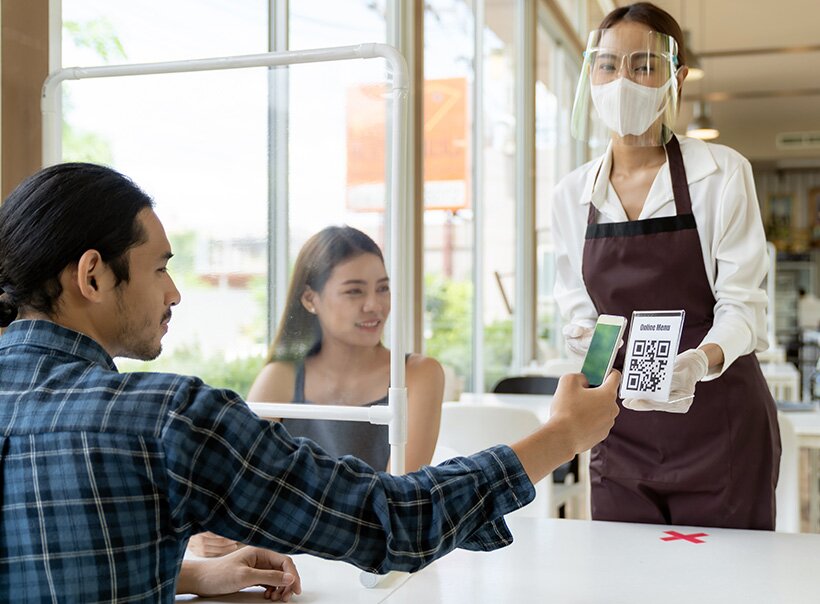
Looking in to 2021, Cox believes table ordering with integrated payments will be sticking around for some time, especially as they boast the advantage of not having to run as many EPoS units as before. In addition, table ordering and app usage will also allow businesses to capture customer data (in line with GDPR law) to push strategic marketing that they may not have been able to do before.
“Having a good understanding of the statistics at your fingertips will be key in 2021, as it will allow businesses to be smarter about their spending, which is crucial for survival during the pandemic,” he says.
Pendlebury’s advice is to remember that you may already have what you need within your existing system. “Take a good look at what you are using and see what you may already be paying for but not taking advantage of. Review what you actually need and not what the supplier tells you that you need,” she stresses.
“Talking to other operators helps you get the lay of the land. One positive thing about Covid has definitely been the increased sense of industry solidarity. And be sure to keep a close eye on government regulations to make sure you are adhering to the new ways of working.”
Guestline and Deliverect offer smooth ordering for hotels
To satisfy the demand for hotels to offer an online food and drink ordering facility, Guestline partnered with Deliverect, which integrates with third-party food delivery platforms to provide a two-way API interface with Guestline EPoS. This provided a new, automated online food and drink solution for hoteliers to boost revenue through deliveries, takeaways and collections.
Neil Gilson, general manager at the Sandy Cove hotel in Devon, uses the product: “The two-way interface between Guestline EPoS and Deliverect has enabled us to offer our guests a contact-free service and drive sales of food and beverages,” he says.
“We have found that customers are ordering more because it is easier than walking to the bar, and this in turn eases congestion at the bar and frees up a member of staff who would normally be taking orders and payments.
“It’s a seamless operation that integrates brilliantly with the Guestline EPoS system – food orders come straight through to the kitchen printer and drink orders come through to the bar printer – it’s definitely a feature we will continue to use after the Covid pandemic.”
How to get the best out of your EPoS
By Henry Seddon, managing director of Access Hospitality
- Integration is key Aligning EPoS systems with apps and solutions through technological integration improves the customer journey and simplifies processes. Technology that can integrate and has multiple APIs will ensure stability, removing the need for short-term replacements because of poor functionality and not being scalable.
- Personalise the customer experience Conversational ordering is available in some EPoS, with configuration on a product-by-product basis. This enables staff to ask the right questions at the right time for the right product, at the point of transaction. EPoS integrated with other products can also capitalise on customer data to personalise marketing for more meaningful campaigns.
- Upselling for incremental profit Smart EPoS systems relay transactional data to provide upselling ordering prompts on the till or tablet. Product information built into the system also gives front of house teams access to details about matching drinks and menu items, where products originate and allergens or ingredients.
- Faster, more accurate service EPoS can empower an entire hospitality operation to work faster and more accurately as well as improve communication between front and back of house. Handheld ordering and kitchen video management systems streamline services and automate processes.
- Comprehensive business reporting You can optimise staffing, product, stock, pricing and future marketing by using real-time sales reports within seconds of a transaction to analyse customer behaviour and trading.
Sponsor’s comment

OrderPay has recently introduced gifting functionality to its mobile ordering app, which is used by more than 6,000 pubs and restaurants in the UK, in the hope of digitising and personalising the gift card experience in time for Christmas.
“This Christmas looks to be more impersonal, and meeting up with friends and family is set to be more challenging than in previous years,” says OrderPay chief commercial officer David Charlton.
“However, with OrderPay, users can send a personalised voucher and message to a friend, colleague or family member that recognises and celebrates the special occasion.”
OrderPay has also developed a wallet functionality, which allows customers to store vouchers in the app. Consumers can also send vouchers to friends and family using their phone number. OrderPay hopes to expand its gifting options in 2021, such as integration with social media.
Read the full Technology Prospectus 2021 here
Photos: Shutterstock



